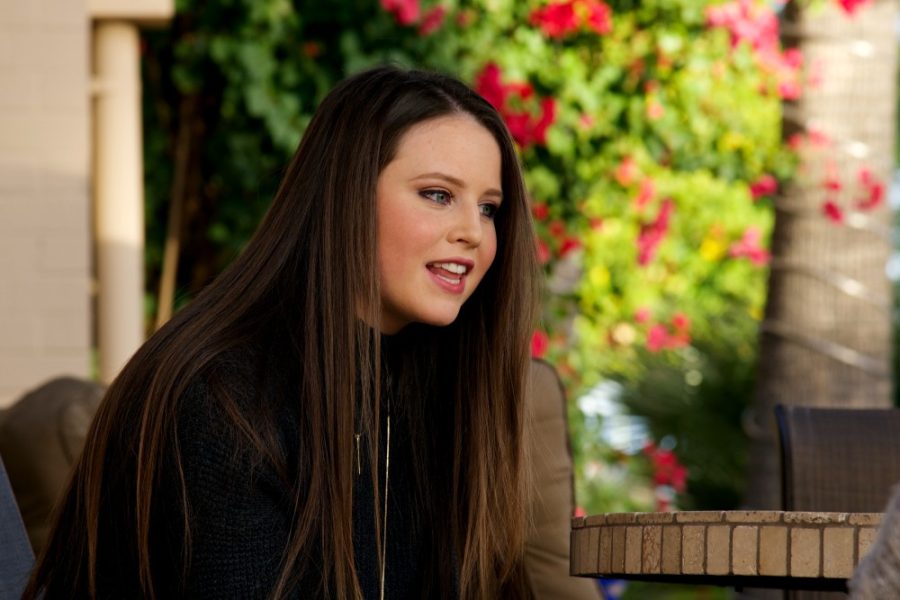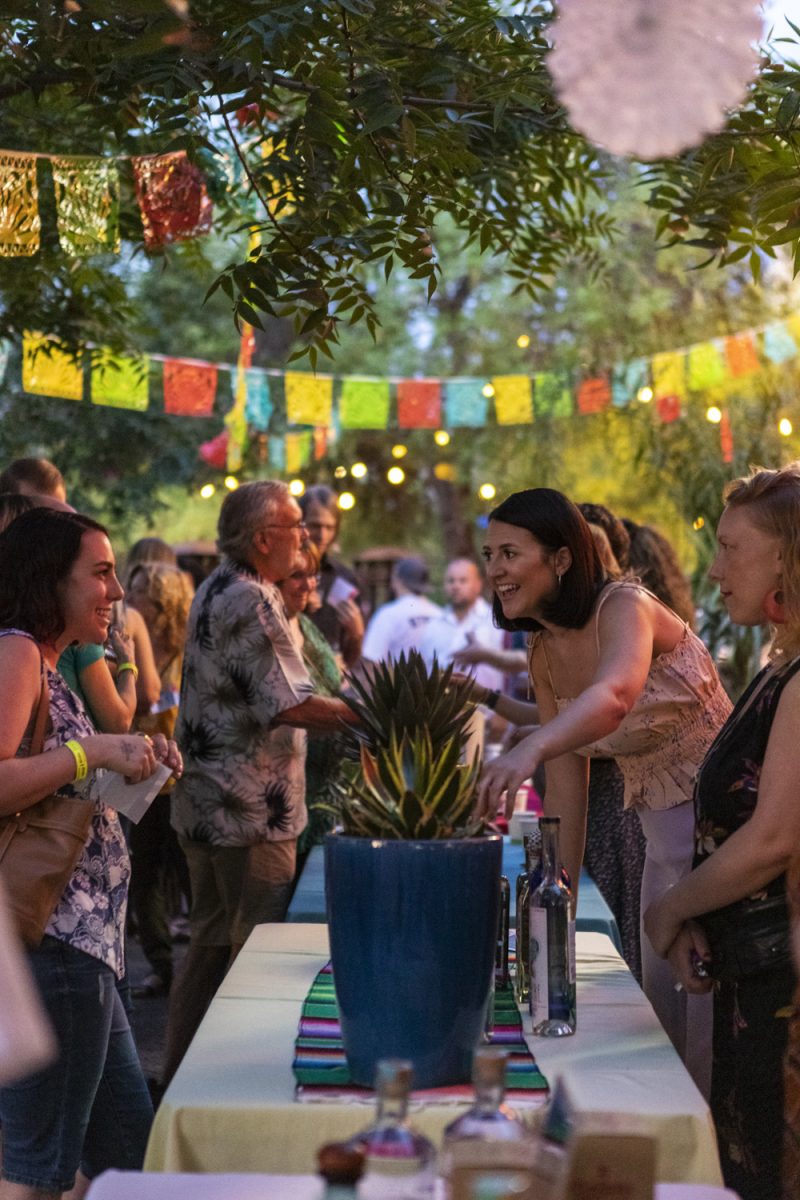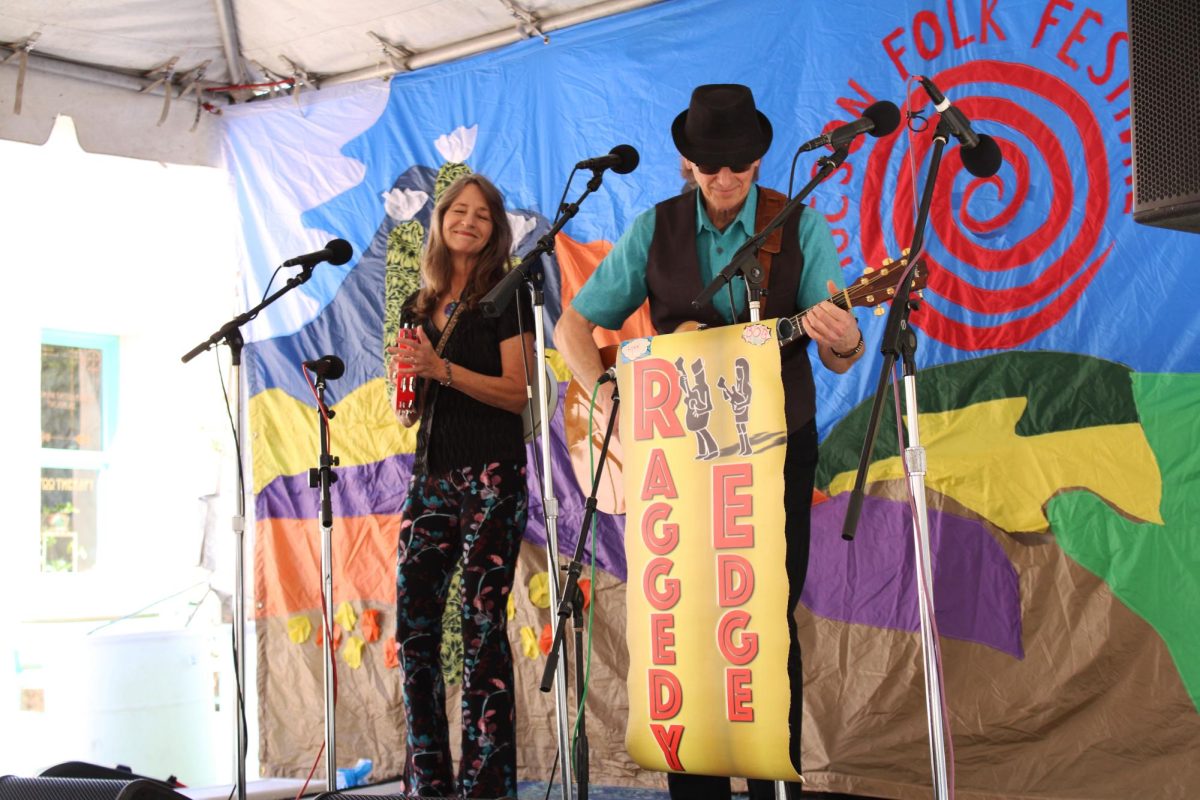In a true attempt to cultivate a “home away from home,” pre-business freshman Juliet MacKay chose to attend the UA because of the ways it resembled where she grew up: Johannesburg, South Africa.
“Arizona weather is a lot like South Africa, and I think that did play into my decision,” MacKay said. “The mornings and evenings are cold, but it warms up and it’s a dry heat too, so it really reminds me of home.”
MacKay grew up in the capital city with her parents and three sisters. She attended private school and learned Afrikaans, a language native to South Africa, which she occasionally still speaks with her family. At the age of 14, she moved to Boston, Massachusetts, after her oldest sister received admission into Duke University.
RELATED: Welcome to the dirty T: Champion equestrian Cameron Kay found a change of pace here at UA
MacKay attended a public school in the suburbs of Boston. She earned a spot in Boston Ballet School, where she danced for four years. In addition to the weather, MacKay explained how the stature of the dance program led her to attend the UA.
“I danced in the pre-professional program at the Boston Ballet School, which I was really fortunate to get into,” MacKay said. “I contemplated joining a professional ballet company, but my parents really wanted us to go to college in the U.S. That’s one of the reasons that we came. So I started looking at colleges that had good dance programs and I was accepted here.”
Instead of pursuing a professional dance career right away, MacKay decided to try something new, majoring in pre-business, while still having the option to participate in the dance program. She also discovered that academic rigor and drive for success proved to be one of the major differences in education between the two countries.
“Over here, everyone is really focused on school and grades and going to college and getting a degree and being really successful when they’re older,” MacKay said. “It’s not like that isn’t important in South Africa, but I just found that when I moved here academics became a big focus in my life.”
MacKay said that while she enjoyed transitioning into American culture, she faced many generalizations about where she came from.
“People tend to presume that the whole of South Africa is this third-world, dying country,” MacKay said. “People are always asking me why I am white, why my accent is the way it is, why I am not part of some tribe living in a mud hut, if I ride elephants to school or even if there are cars there. The list goes on and on. I’ve been asked the most ridiculous things.”
MacKay said she found these misconceptions to prove very telling about how knowledgeable Americans are of South Africa.
“It’s just interesting to see how much Americans actually know about South Africa because occasionally, there will be someone who knows a ton and then there will be someone who won’t even know where South Africa is,” MacKay said. “Someone asked me if it was next to England once.”
Despite this, MacKay said she generally enjoys living in the States. She particularly loves the culture that surrounds holidays.
“Getting to know more about American culture and celebrating Thanksgiving has been my favorite part,” MacKay said. “Americans are so into holidays and it’s so fun to see because everyone goes all-out, decorating all their houses and everything. In South Africa, we put up a Christmas tree, but no one really decorates outside of their house. Americans are really festive, and that’s really fun to be a part of.”
Along with the opportunity of higher education, MacKay revealed that safety played a large part in the decision to move to America, particularly after her father was held at gunpoint.
“Security in South Africa is really bad. My house had a wall around it with an electric fence and a gate and you never walked anywhere,” MacKay said. “It’s really weird coming here, because people walk everywhere and that was never an option. It was really unsafe.”
Yet, MacKay misses her family and friends. She said it has been easy to stay connected to home, though.
“My two older sisters and I are definitely more connected with South Africa than my younger sister, just because she moved when she was 12, so she was quite young,” MacKay said. “I am still really close to all my school friends in South Africa and I haven’t lost my accent, which I really thought I would, but having my parents around really helped.”
While MacKay and her family travel back every December to visit, she has become accustomed to the idea of staying in America.
“When I first moved and I was in that period of adjusting, I did think I was going to move back,” MacKay said. “But now that I am already in college here and I see how many doors have opened for the future by living in America, if I go back, I know that I won’t have as many opportunities that I would if I stayed here.”
Follow Lindsey Otto on Twitter.









